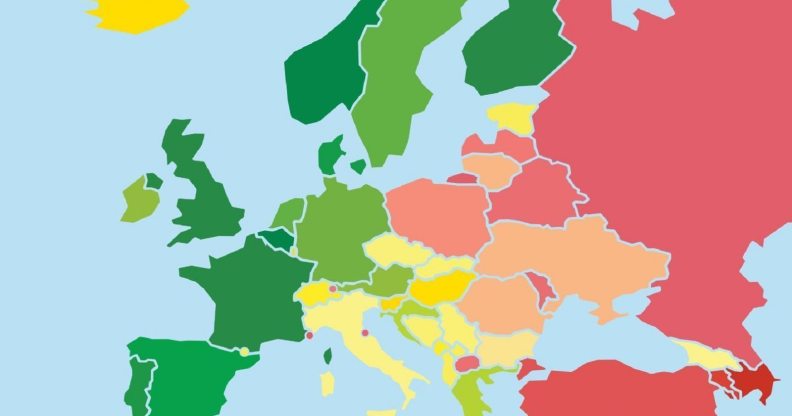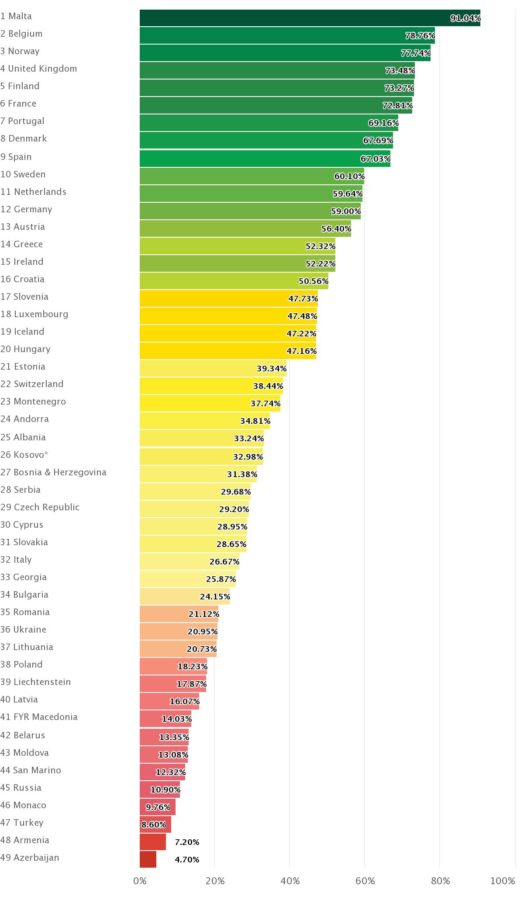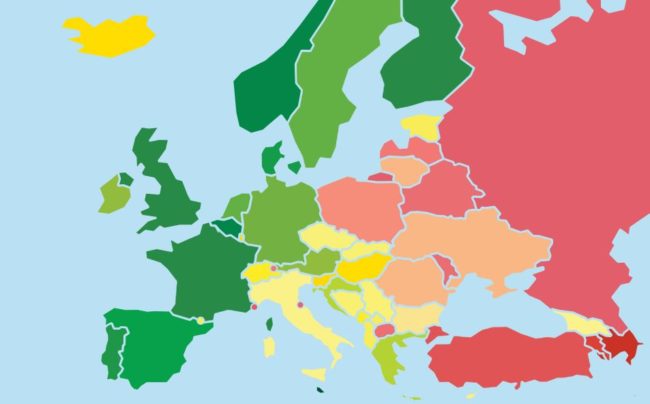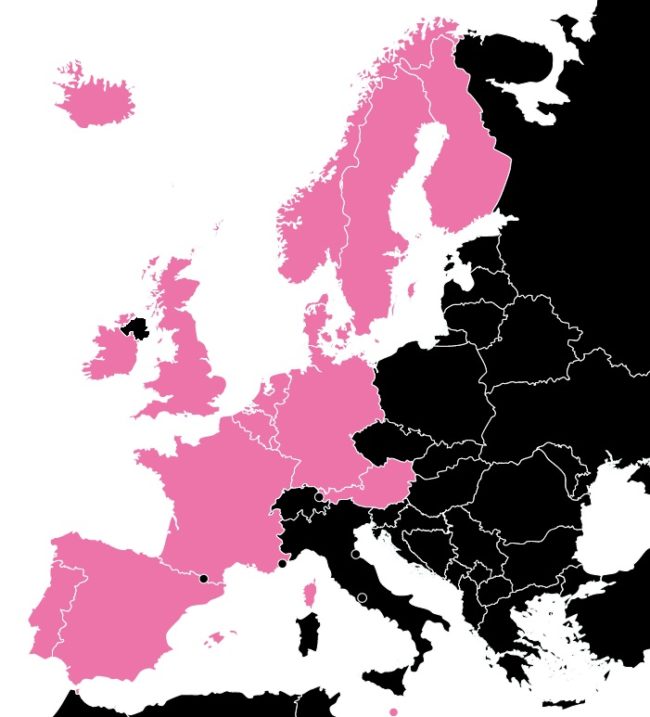UK drops to fourth in European LGBT rights rankings amid warning over transphobic media surge

Once hailed the best place in Europe to be LGBT, the UK has now dropped to fourth in the continent-wide LGBT rights index.
Rights group ILGA-Europe released its annual Rainbow Europe index, assessing countries on their progress in pursuing specific legal reforms to secure equality for lesbian, gay, bisexual, transgender and intersex people.
The rankings were once dominated by the United Kingdom, but the UK has slipped down the list in recent years – as it has lagged behind on reforms while other countries have made progress.
This year’s Rainbow Index, released today, shows the UK is now in fourth place.
Malta continues to top the rankings, having brought in equal marriage, a liberal new gender recognition law, a ban on gay ‘cure’ therapy and pioneering protections for intersex people.
Belgium and Norway have both also passed the UK after passing modern gender recognition laws.
In the UK, meanwhile, progress on gender recognition reform has seemingly stalled amid an anti-transgender media onslaught, while there continues to be little progress towards equal marriage in Northern Ireland.

ILGA specifically noted the surge in anti-transgender sentiment in the UK in its report.
It states: “One of the most notable trends during 2017 was the increased visibility and public discussion of trans and intersex issues in the UK.
“Following frequent calls from LGBTI activists, public consultations were announced across the UK to review the Gender Recognition Act.
“Updates to the law, dating from 2004, were one of the key recommendations for national policymakers contained in last year’s Annual Review and the consultations will be followed closely.
“On a more negative note, LGBTI NGOs noted that the announcement of the national consultations on the legal gender recognition process were accompanied by a rise in transphobic commentary across traditional media platforms and online.
“The effect that bias-motivated speech can have at a personal level was demonstrated by the trans woman from the UK who was forced to seek residency in New Zealand after facing years of discrimination.”

ILGA notes that the UK “still has work to do… around the protection of intersex people’s bodily integrity,” while “the regional variations in legal protection for LGBTI people are still blatantly apparent.”
It adds: “The Democratic Unionist Party’s support for the minority Conservative UK government brought the situation for LGBTI living in Northern Ireland back into the spotlight.
“Thousands took the streets of Belfast in support of equal marriage; however there was disappointment for two couples as their cases challenging NI’s lack of marriage equality were unsuccessful.”

Northern Ireland is increasingly isolated in Western Europe on equal marriage
ILGA-Europe Executive Director Evelyne Paradis said: “Against a backdrop of backlash on human rights across Europe, how can states possibly think the work on LGBTI equality is finished?
“The incredible achievements of the past decade are at stake. Let’s not make the mistake of thinking that we have achieved equality. There are too many signs that trends like populism and nationalism aren’t political buzzwords – they can have a lasting impact on the lives of LGBTI people in Europe. There are too many signs around us that many of the recent wins are fragile.
“So let me say it again – we are nowhere near done.”
Joyce Hamilton, co-chair of ILGA-Europe’s Executive Board, said: “Our communities unfortunately know all too well how vulnerable we are to undemocratic tendencies. Law and policies are often the last line of defence for LGBTI people so that is why we insist on making sure our countries’ legislation explicitly protects our human rights.
“And this goes for everyone within our communities – ensuring full equality for LGBTI people has never and will not stop at marriage equality! All governments in Europe have to pick up the pace, stick to their commitments and make legal protection a reality for all LGBTI people, particularly trans and intersex people.”
The lower end of the rankiongs saw countries including Armenia, Moldova, Belarus, Latvia and Poland criticised for their poor environment for LGBT people.
Brian Sheehan, co-chair of ILGA-Europe’s Executive Board, added: “Avoiding your responsibility to work for LGBTI equality is not an option for any political leader or government official in 2018.
“Now is the time for them to show leadership by fully backing policies that make equality an everyday reality for the people they serve. Across Europe, the only way for policymakers to protect the great LGBTI equality advances of the last two decades is to build on them and commit necessary resources to ensure that the everyday life for LGBTI people is transformed for the better.
“ILGA-Europe’s Rainbow Europe package gives policymakers (at every level of the country ranking) very concrete recommendations for where they can start to legislate and make a real impact – and our member organisations throughout the region have even more suggestions. We have all worked hard together for these advances. It’s time now to push hard to make them real for LGBTI communities everywhere.”

